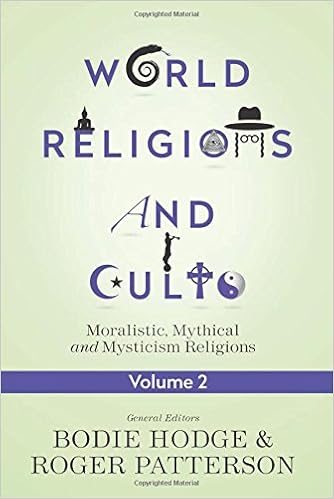Monotheism
Definition
Monotheism refers to any philosophy which claims that there is only one supreme creator of the universe.
Keywords: Monotheism, Atheism, Polytheism, Theism, Philosophy, True, Deductive, Creator, Universe.
Veracity
Monotheistic claims are true .
Proof
Either there are no gods, and therefore atheistic claims are true, or there are many gods, and therefore polytheistic claims are true, or there is only one god, and therefore monotheistic claims are true.
Premise 1: If atheistic claims and polytheistic claims are both false, then monotheistic claims are true.
Premise 2: Both atheistic and polytheistic claims are false.
Conclusion: Therefore, monotheistic claims are true.
Since both atheistic and polytheistic claims are deductively false, monotheistic claims are therefore deductively true.

Gilbert Guttlebocker, Defender of Dragons
Riveting, yet absurd; romantic, yet innocent; Gilbert Guttlebocker, Defender of Dragons is a little Roald Dahl, a little Harry Potter, and a little Chronicles of Narnia, all rolled into one. Timothy McCabe collaborates with the great Benedict Ballyhoot to bring you the novel of the century!

In Printed Form
Along with numerous other authors including Don Landis, Bodie Hodge and Roger Patterson, Timothy McCabe contributes analyses of various world religions and cults in this volume from Master Books.
Other Writings
"A religious friend declined an invitation to a coworker's going away party because he feared there would be drinking there. Does the bible not encourage moderate consumption of wine?"
I'm going to answer with more information than you probably want, in anticipation of possible objections to my answer. When reading the Bible in English, it can often be difficult to discern what the writers were referring to when we see the word "wine". In Hebrew (the Old Testament), there are at least two different words that are both translated "wine" in our modern English versions, and there is a third word we will look at as well.
Continue reading...
"In Romans 1:22-27 especially verse 25, it condemns those who turn God's incorruptible image into the image of corruptible man. Why then do so many Christians say Jesus is 'god incarnate' or even 'son of god'?"
Jesus is one person with two natures. One of His natures is divine (God) and the other is human (man). His God-nature is not His man-nature, and likewise, His man-nature is not His God-nature. They are distinct. Thus, Christians correctly refer to Jesus as both "God" and also as "man", all the while NEVER referring to God as man or man as God. This may sound confusing, but it really is not when put into perspective. Take the following analogy...
Continue reading...
"Is Buddhism compatible with Christianity?"
Buddhism is incompatible with Christianity. Buddhism rejects the concept of a permanent self, or an immortal soul. In Christianity, the concept of "self" and the immortal soul are pervasively important. In Christianity, it is "self" that sins (Ezekiel 18:4), is resurrected (John 5:29, Romans 8:11), and is eternally judged (Matthew 7:23, Revelation 14:11). It is "self" that is offered eternal forgiveness through Jesus Christ (John 3:16).
Continue reading...